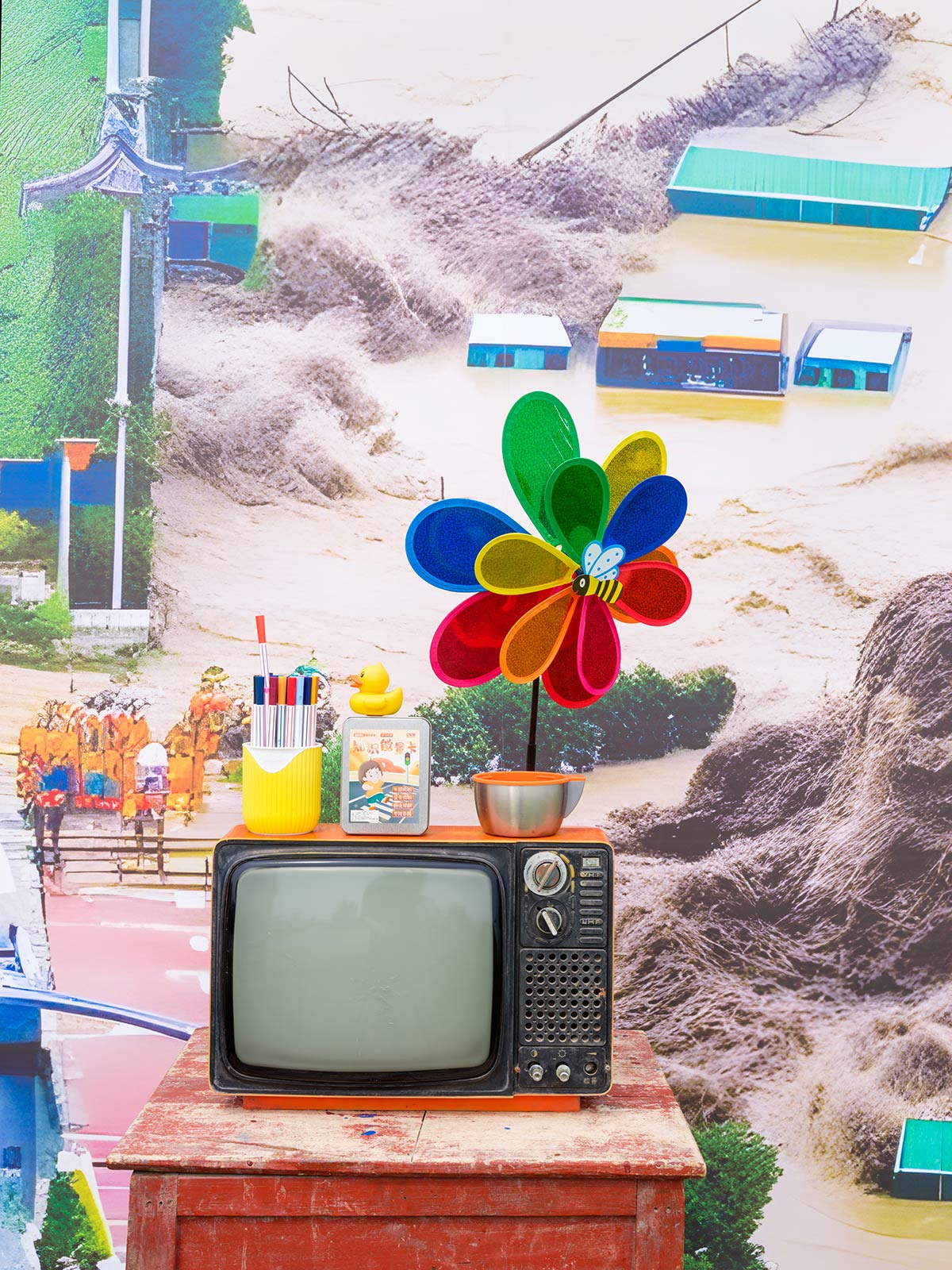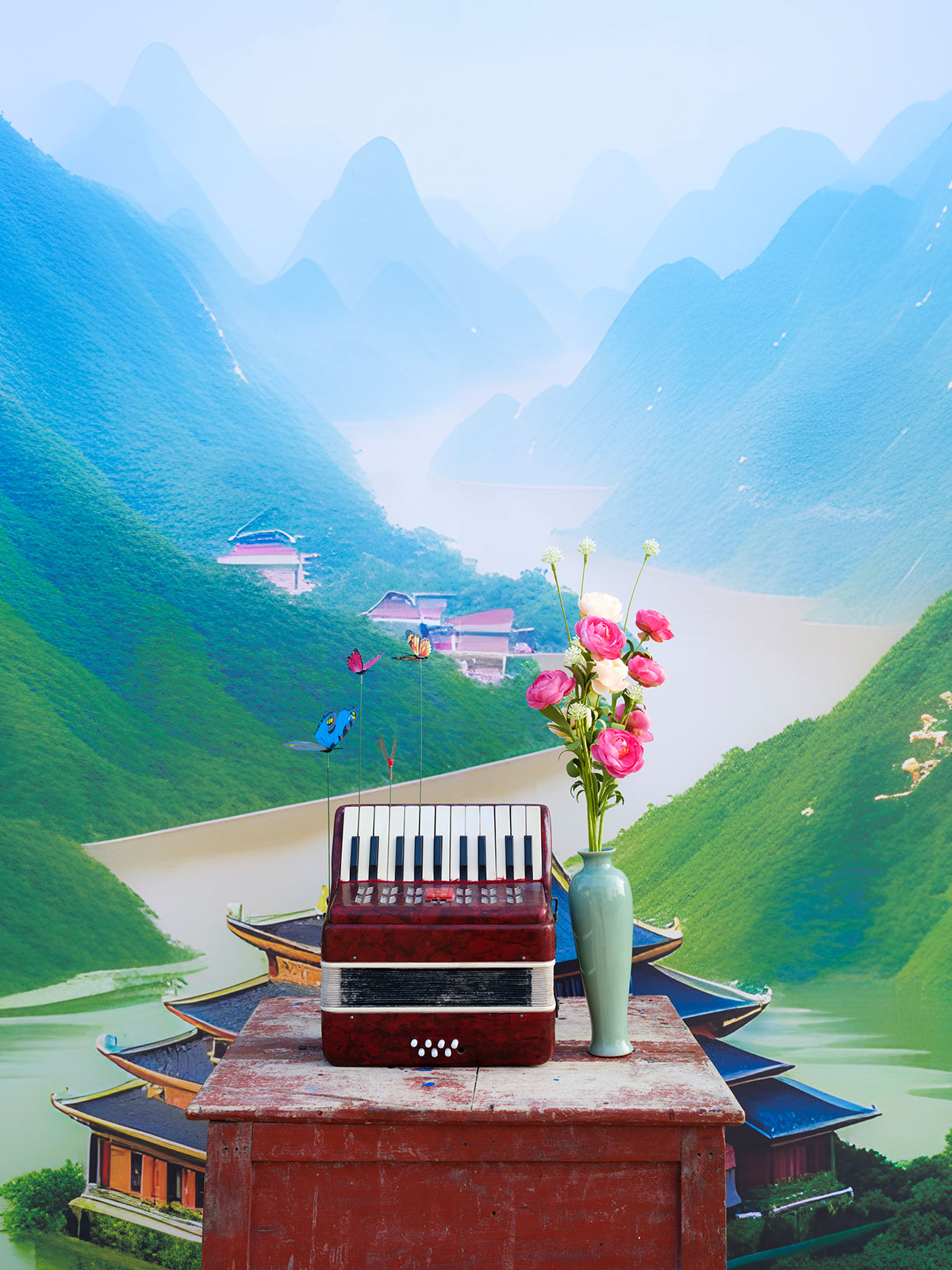Often called the Mother River of China, the Yangtze bordered Chun Hua Catherine Dong’s childhood as she grew up along its shores. Having left her native country behind, Dong seeks to reconcile her memories and future visions of that landscape, now distant in both time and space. She employed generative AI to produce images of her home city in the future, the results showing waves crashing against the shores and flooded buildings. Behind these unreal images is the reality that the annual floods the Yangtze has experienced for centuries, which have proved devastating time and time again, have worsened in recent decades.
During one of her trips to China, Dong anchored her body in the present moment next to objects from her childhood and these menacing visions of the future. Souvenirs from her life with her now-deceased mother, along with food her mother once prepared, are juxtaposed with images of a nourishing yet chaotic river. Deeply attached to these original waters, Dong positions herself, before ruins of the past and future, as an island occupied by hopes for a more habitable world, along with the rituals and gestures that must be made to achieve it.
An exhibition presented in collaboration with Mois Multi.

